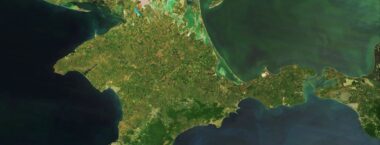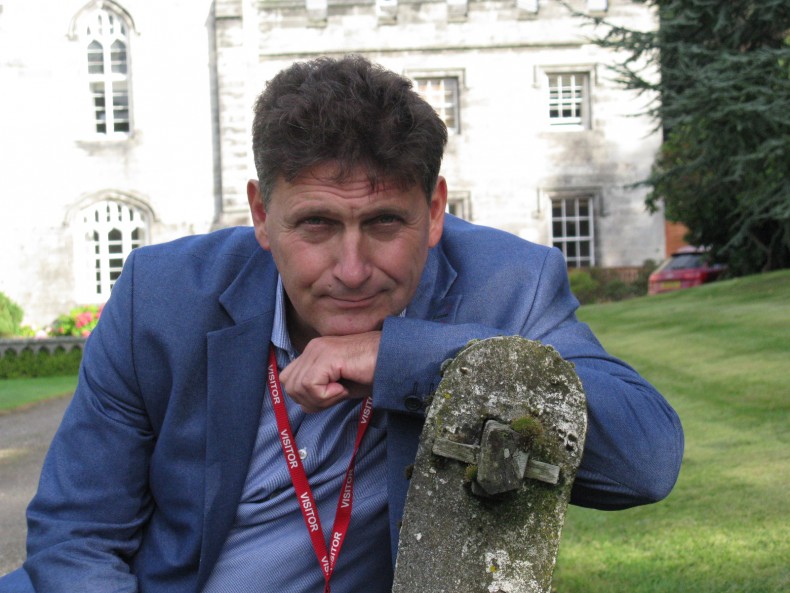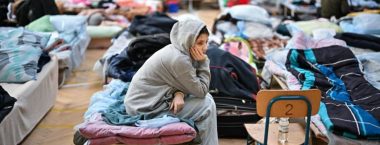
Action Plan for Implementing the Strategy for the Deoccupation and Reintegration of Crimea. What has changed?
On April 4, 2023, the Cabinet of Ministers of Ukraine (CMU) approved Order No. 288-r,...
03 May 2023
If all 34,000 members of the unauthorized armed forces of the so-called “DPR”/”LPR” were to face justice today, as few as 12,410 of them would be convicted. Why is that? Chief of the Analytical department of UHHRU Oleg Martynenko know the answer on this question.
International documents name prosecution of perpetrators as the first task of transitional justice. They can be members of the military, rebels, politicians, government officials, etc., but they all have one thing in common – their actions have led to a social tragedy in society.
Of course, the complicity of each person in instigating civil war or external aggression, instituting military dictatorship or committing genocide also varies. This is what makes courts in post-conflict countries play a special role, classifying the actions of perpetrators as international, war or general crimes. Victims of a conflict have particularly high hopes for court rulings, since a just sentence is the first step to their satisfaction and may later become the starting point for peaceful coexistence of former adversaries.
Is Ukraine today ready to hold fair trials over those who have committed crimes in the occupied territories and the conflict zone?

At first glance, it does appear so: Ukrainian courts can, under certain conditions, potentially perform their functions. In order to strengthen those, three bills (6170, 7425, 7426) on the prosecution of collaborators and increased responsibility for treason were registered with the Parliament. Draft Law On Pardon, which extends the authority of courts in assessing the actions of potential perpetrators, is undergoing public discussion.
In reports of judicial and law enforcement bodies we find, for instance, 199 criminal proceedings opened under Art. 11 of the Criminal Code of Ukraine (treason) against former Crimean officials. 439 persons have already been notified of the charges, with 74 of them former deputies of the Verkhovna Rada of Crimea, 56 – members of Sevastopol City Council and 299 – law enforcement officers.
It looks fine. However, what will we get out of all these court proceedings?
That’s where there’s an unpleasant surprise waiting for Ukrainians. According to the statistics of the judiciary, only 36.5% of 2017 criminal proceedings ended in sentencing. If we apply that to the aforementioned 199 treason cases, it is likely that only 73 of them will end in a sentence for 160 people. This algorithm could be used to calculate the probable outcome of cases regarding the actions of the 34,000 combatants currently enlisted in the armed forces of the so-called “DPR”/”LPR”. Even if all of them appear before a court, Ukrainian justice will only deem guilty about 12,410 persons. The remaining 21,590 will be released and acquitted. Why is that?
First, let’s recall whether Ukraine has the resources for an efficient investigation
As early as in the distant 1992, 35 criminal cases per year was considered “scientifically advisable workload” for an investigator. The actual load in 1995 was 74 cases per investigator. In 2017 the average workload was between 80 and 200 cases. The load per prosecutor in 2017 was 350 (Lviv) to 600 (Kyiv) proceedings per year. Obviously, under these circumstances, investigators will either be taking too long to do their job or will only deal with cases related to the so-called “DPR”/”LPR”. Other cases for ordinary citizens will have to be put off for later.
Secondly, let’s see how well the judicial system is working today?
In 2017, the workload for a judge of a local court was 57 cases. The period necessary for proper consideration is at least 10 days per case (provided that all materials are properly prepared). That is why in 2017 over 26 thousand criminal cases lasted longer than a year, over 4 thousand cases lasted more than 2 years, and 2,303 cases – over 3 years. Is there a guarantee that the actions of combatants of the so-called “DPR”/”LPR” will be considered in accordance with the terms of efficient justice?
All the above shows that the country needs to enlist a significant number of investigators, prosecutors and judges, which would allow to ensure the protection of the rights of the conflict’s victims (in the shortest possible time, efficiently and impartially). In Rwanda, for instance, the government established 10 thousand courts and recruited 250 thousand judges to prosecute 130 thousand war criminals.
It is clear that Ukraine may require both international technical assistance and assistance from relevant international experts in order to guarantee efficient justice. It may become an organizational necessity to establish a temporary national agency for the investigation of war crimes, as well as “hybrid” courts with the involvement of judges from other countries. However, several components are still unprepared for this – political awareness of the government, Ukrainian legislation, judicial practice and skills of law enforcement officers.
Let’s hope that active support of civil society will eventually make the state able to pass the test by international standards of transitional justice.
If you find an error on our site, please select the incorrect text and press ctrl-enter.

On April 4, 2023, the Cabinet of Ministers of Ukraine (CMU) approved Order No. 288-r,...
03 May 2023

Since the beginning of the full-scale Russian invasion of Ukraine, about 150,000 civilians who fled...
17 October 2022
Within the framework of Crimea Academic Forum – 2022, Taras Shevchenko National University of Kyiv...
15 September 2022
Taras Shevchenko National University of Kyiv and its student community in cooperation with leading Ukrainian...
13 September 2022